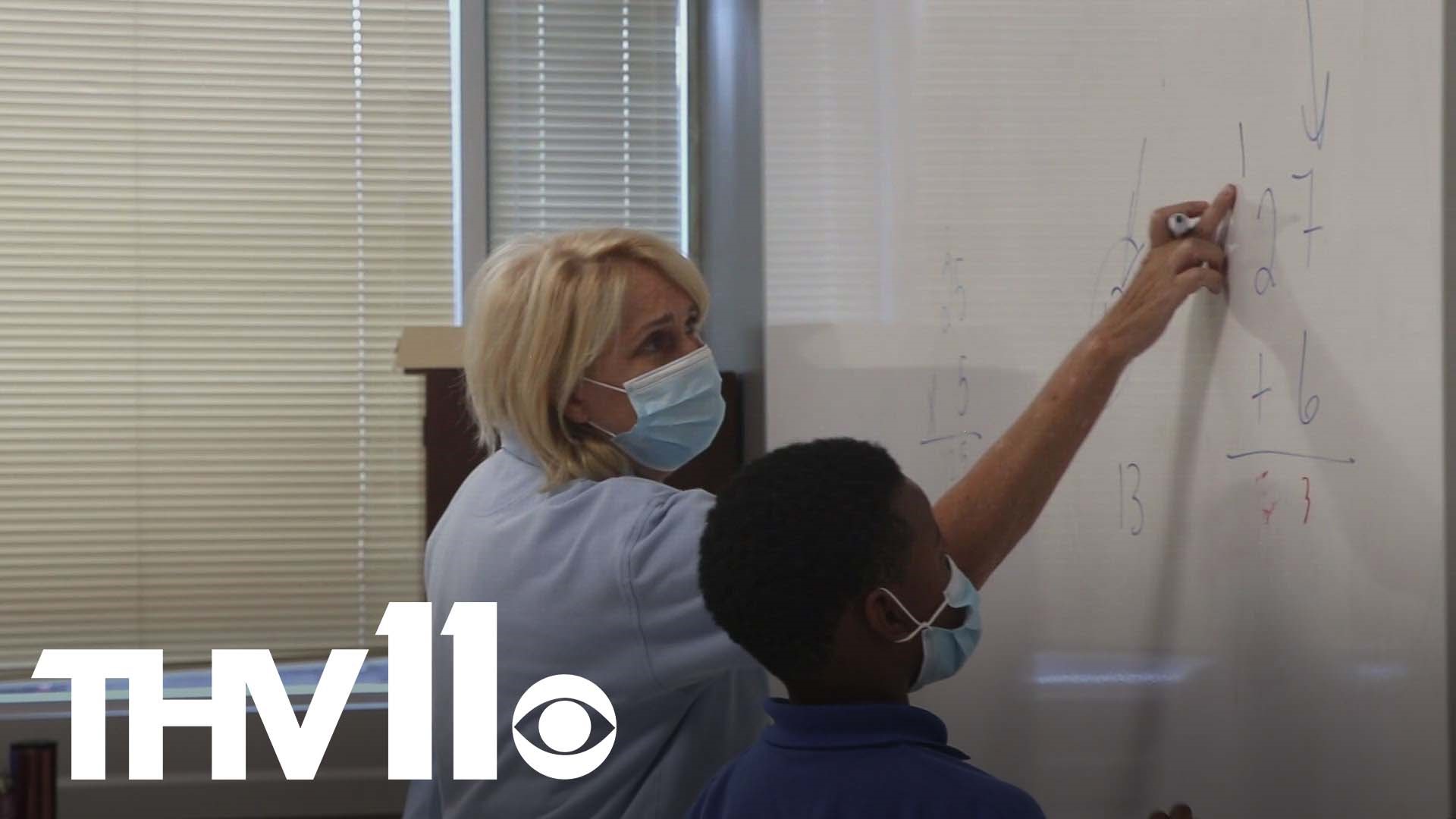ARKANSAS, USA — As students return to classrooms this year, some are being introduced to more mental health check-ins since the school environment can be difficult for some.
When there’s an added layer of entering a brand-new campus or classroom, it can cause students to feel overwhelmed. However, a helping hand in and out of the schoolhouse can make a big difference.
"As we continue to navigate, there's definitely more and more studies coming out from mental health America & Nami," said Isis Pettway, a licensed professional counselor.
According to a study by the CDC in 2021, more than 4 in 10 students, or nearly 50%, felt persistently sad or hopeless, and many experienced poor mental health. It's a topic professionals continue to watch.
"Their mental health, there's an uptick that they're seeing in anxiety and depression," Pettway said.
According to Pettway, having a support system available within the school is a game-changer for students.
"It can change lives,” Pettway explained. “The role that you have in a kid's life is very important, because number one, they want to know, is this somebody that I'm safe with? Is this someone that I can depend on?”
This sentiment was echoed and shared by LISA Academy's district lead counselor Sydney Kenward.
"The more we dig into their personal lives and their personalities, you learn the things about them that might make up their person,” Kenward said.
If a student is actively looking for counseling, Pettway said it's important to remember they are more than just a student.
“It is so important to talk to them instead of at them because they're so used to the lens of authority figures," Pettway said.
As an in-school counselor, Kenward has realized that many may think of their work and imagine picking up a class schedule. However, at LISA Academy the two are separate and to Kenward, her outreach is much more than that.
“Are they having a safe place to live, food to eat, clothes to wear?” Kenward asked. “If we're making sure our students have those basic necessities, we can work on those skills of their social-emotional levels.”
She said that her team is focused on both students' needs in the schoolhouse and at home.
“I want to know how I can intentionally engage families where they are,” Kenward said. “That sometimes that means I know how to get there and sometimes I'm still learning.”
According to Pettway, counselors and families alike should seek to find stressors that are impacting students— this can include a lack of routine, not understanding their emotions, or a lack of resources.
Once the stressors have been identified, then you can help students find ways to take back some control.
“Control is a huge factor in my role as a therapist because this is their hour, it is about them,” Pettway explained. “My role is to serve as a support. I am not an extension of the other authority figures in your life.”
That control has proven invaluable to Pettway.
“Owning something, really does change some things up and you begin to see their confidence and you begin to see them grow in decision-making,” Pettway said.
Kenward added that her team at LISA Academy sifts through data at the end and beginning of the school year, finding patterns in students' mental health, and adapting their approach.
“If we're seeing a need here, or a goal that we've met, we're going to keep going, get better, and keep going and meeting those new goals,” Kenward said.
Pettway also said that professionals like herself and parents alike should be realistic with the expectations on coping for students— a student in 5th grade will respond differently than a 12th grader.

